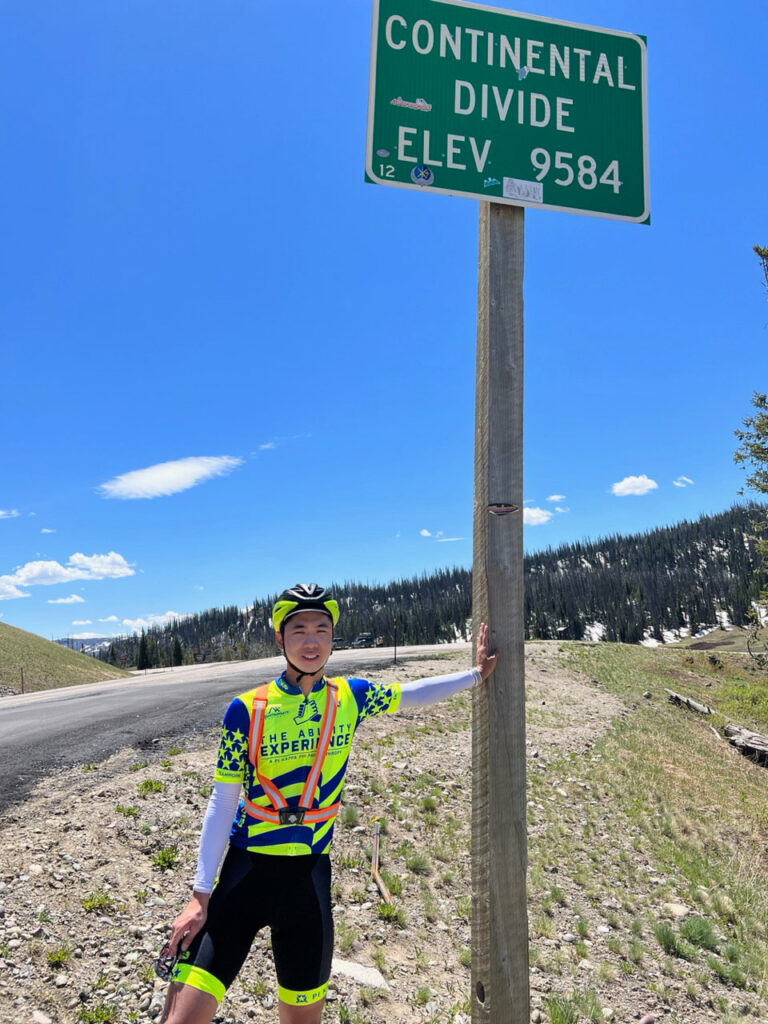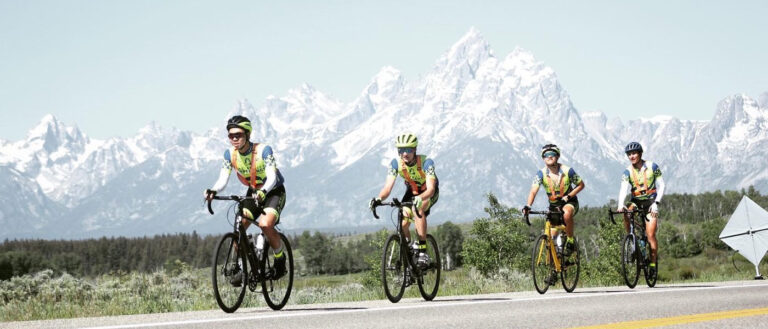Major: Biology, Master of Public Health
Minor: Business management, chemistry
Year: Fourth-year
The distance between Seattle and Washington, D.C., is 4,370 miles. On a bicycle? It takes 66 days to cover that distance at an average of 85 miles a day. Just ask Steven Wang, a fourth-year student majoring in biology and pursuing his Master of Public Health degree.
Over the summer, Wang was one of 100 men to make that trip by bike as part of an annual event called the Journey of Hope, a fundraiser for The Ability Experience, Pi Kappa Phi fraternity’s philanthropic arm. Wang is a member and president of the fraternity’s Case Western Reserve University chapter.
By way of this impressive bicycling feat, the program raises awareness for people of all abilities and spreads a message of inclusion. Along the journey, cyclists make stops at partner organizations that support individuals with disabilities to make personal connections.

Wang and his travel companions experienced ever-shifting scenery—sometimes seeing drastic changes in topography in a single day. On day 20 of the trip, the cyclists ascended the continental divide in Jackson, Wyoming, experiencing an elevation change of 9,584 feet. They were rewarded with an “adrenaline-filled” descent at 40 miles per hour, watching the snow-covered mountains give way to flat red rocks.
While a cycling trip of this nature was new to Wang, he is an experienced rider. A member of the Case Cycling Team and a mechanic for the Spartan Bike Shop, Wang developed an interest in cycling in high school, often riding his bike along the levees of New Orleans, where he lived most of his life. Part of what drew Wang to the Pi Kappa Phi fraternity was the opportunity to participate in the Journey of Hope.
“I decided to go on the Journey of Hope to challenge my limits both physically and mentally,” Wang said. “It was something that was extremely out of my comfort zone whether it be cycling everyday or not knowing what the sleeping situation was going to be at night.”
After the successful journey, Wang returned to Case Western Reserve in the fall to continue working toward his undergraduate and master’s degrees.
CWRU appealed to Wang because it offered easy access to top-notch healthcare organizations, a major draw for a pre-health student.
Ultimately, Wang is inspired to pursue a career in public health because it offers a “bird’s-eye” view of improving health in the United States. He hopes to focus on policy and interventions.
“I am a strong believer of the effect prevention has in our country,” Wang said.

